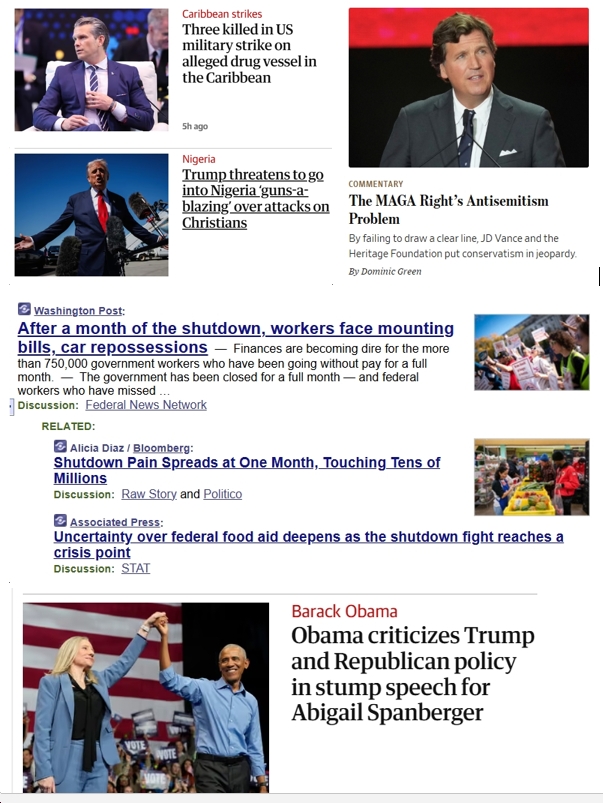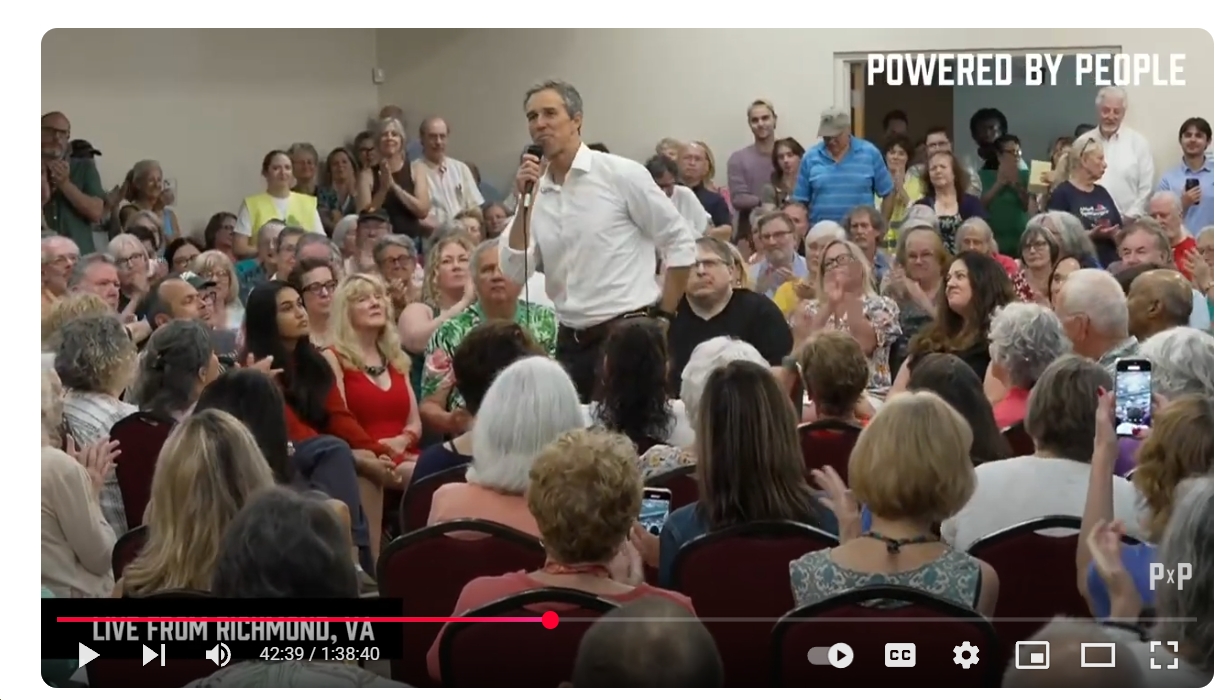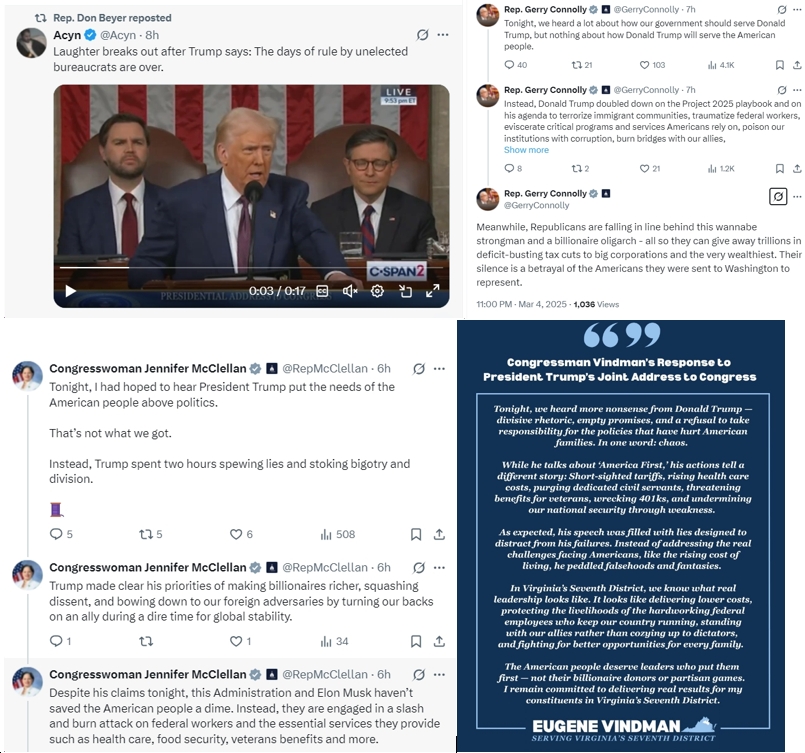The following comments are reposted here with permission from the authors – Loudoun County Democrats Chair Alfonso Nevarez and long-time Democratic/progressive/labor activist Karen Duncan. The comments by Nevarez and Duncan are in response to this Washington Monthly piece, which worries about parallels in America today with the rise of fascism in the 1920s and 1930s, including the possibility that a “significant fraction of our economic elites in the business community [could] conclude that their interests are better protected by siding with Donald Trump” as an alternative to an increasingly “populist progressive” Democratic Party, which those business elites could see as a “bigger threat” than Trump. I know, it’s horrifying, but as someone who’s read a lot of history, I don’t believe we can write off such a scenario.
With that, here are the comments by Alfonso Nevarez and Karen Duncan (with which I largely agree), with bolding added by me for emphasis…
Nevarez:
I see things very differently. 2020 will be a fight for the soul of this country. Whatever Trump’s, flaws, one thing is certain, he provides a vision for this country, no matter how horrifying. We need to counter that with an equally bold vision, one that includes equal opportunity and shared humanity and the eradication of crippling poverty. Yes, there is risk and uncertainty in that strategy, but there is risk and uncertainty in any strategy, and I haven’t seen anything to convince me that a moderate approach is truly safer. The moderate in 2016 lost, despite having the support of the 1%. The moderate in 2004 lost. I’m simply not convinced that a moderated vision provides any strategic upside, so why not get behind a bold vision? One that will actually seek to eradicate poverty, provide healthcare to everyone, address gender and racial income/wealth gaps, reduce carbon pollution and ensure environmental justice in light of a changing climate, and secure equal rights for immigrant and LGBTQ citizens. Where is the evidence that proves that campaigning on those things will make it more likely that we lose?
Duncan:
For forty years, we have listened to journalists and pundits and their ideas have not worked out. First, they assured Democrats that the public hated negative campaigns, so we dutifully stayed positive, ignoring vicious and outright dishonest attacks on our candidates (Swift Boat, anybody?) and got creamed by the other side. We finally began answering every attack and fighting back, and guess what? We began winning.
So, next, the pundits earnestly assured us that incrementalism and moderation was the way to go. We got a health care reform that really never lived up to its true promise, didn’t get a single Republican vote (even though it was a Republican reform formulated at the Heritage Foundation and originally called RomneyCare in Massachusetts). And from 2010 through 2016, we lost 1,000 seats from the federal to the state to the municipal level all based on demonizing that healthcare reform. Finally, when Republicans couldn’t come up with a better replacement plan (because THIS was originally their plan to start with) people began realizing they could lose their one – imperfect but still effective – lifeline to medical care.
Democrats have dutifully followed the advice of political pundits for years, and lost ground, left the country little better off, and left young people disillusioned with our ability to lead and provide real solutions. Republicans, meanwhile, keep tugging the country to the right, claiming a mandate when they win close races, and instituting bold but bad ideas, and never worry about the advice to tack to the center and be moderate. And guess what? They’ve gotten to try their ideas time and again. We know their ideas fail. But at least they implemented them and we got to see what happened.
We don’t even know if center left Democratic ideas would work because when we get in office, we never even get to try them. Who knows if they would be successful. But it seems to me, we at least ought to get the same opportunity as we’ve given Republicans to see if our ideas actually do work better. If we don’t ever try them, how will we know? For the record, I think they would.





![Video: UVA Prof. Larry Sabato Talks About “one of the most disturbing posts that [Trump] has ever made”; Dems Doing “a terrible job, so far at least, of mobilizing opposition to Trump”](https://bluevirginia.us/wp-content/uploads/2025/02/sabatocnn.jpg)












